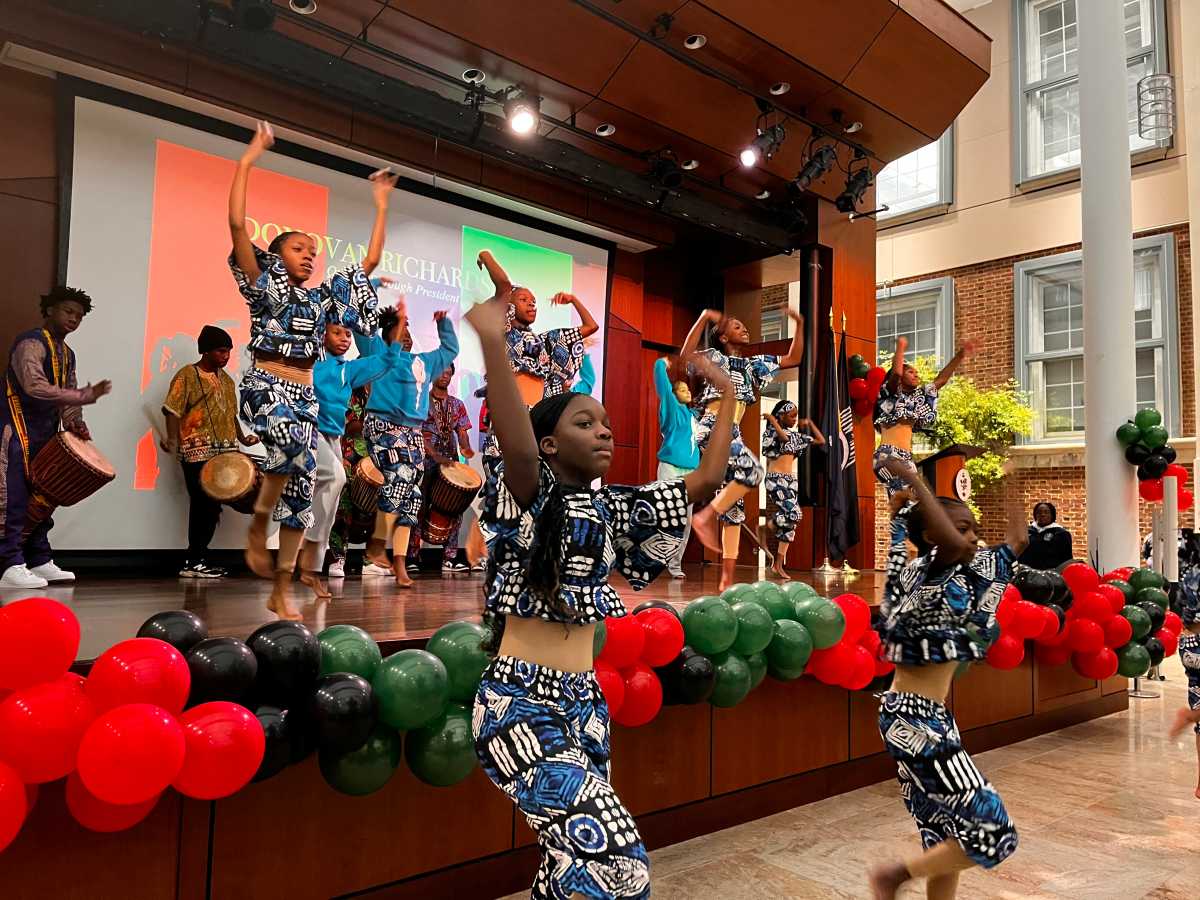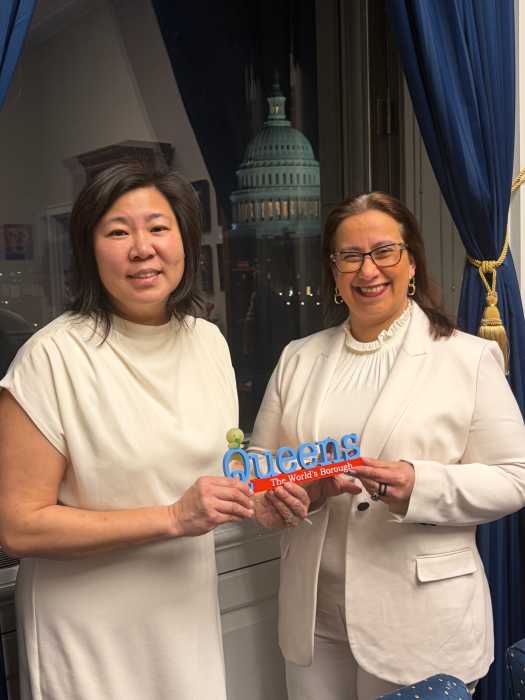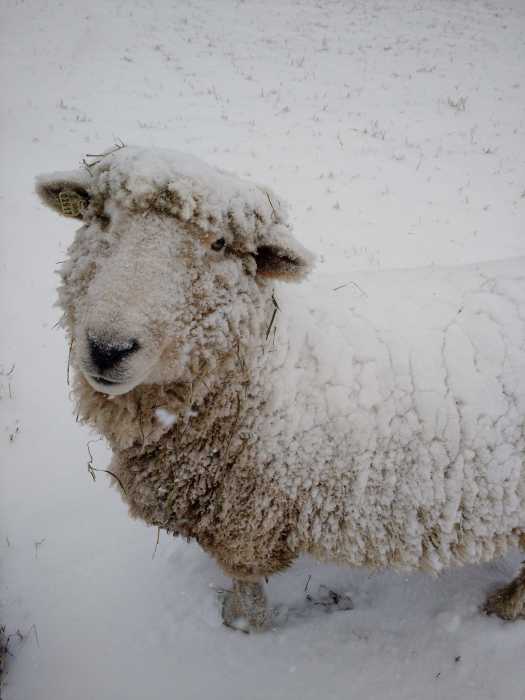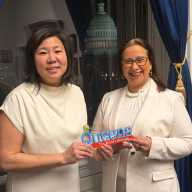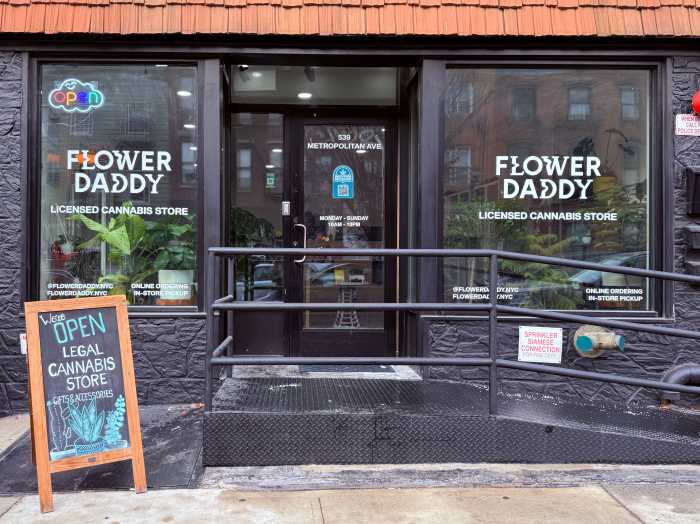Hundreds of Queens residents gathered at Queens Borough Hall on Monday, Dec. 30, to celebrate Kwanzaa.
Attendees donned ankara-print clothing, daishikis and other traditional West African-inspired attire as they dined on Black American and Caribbean soul food at the event, held at the Helen Marshall Cultural Center at Queens Borough Hall in Kew Gardens.
The three-hour event featured multiple performances, public speakers and an informative demonstration of the principles of Kwanzaa.
Attendees enjoyed the first hour of the event, watching a screening of “The Black Candle,” a documentary detailing the importance of Kwanzaa and its principles within the Black diaspora. After the screening, attendees stood for the “Star-Spangled Banner” and sang to “Lift Every Voice,” the Black National Anthem, led by FDNY firefighter Regina Wilson.
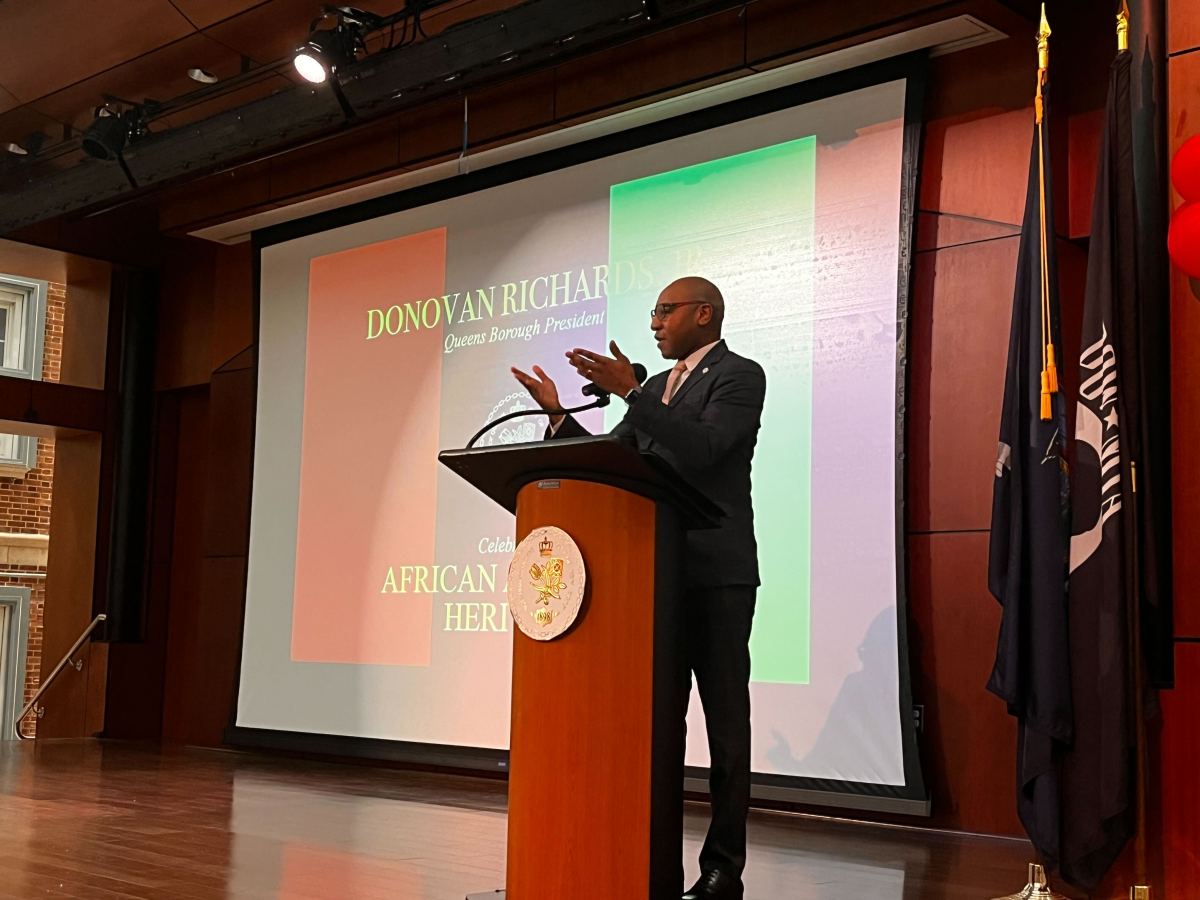
Following the song, Queens Borough President Donovan Richards warmly greeted the audience and acknowledged the African American Heritage Committee for their years of service organizing the annual event. Richards touched upon how Kwanzaa celebrates Black excellence and African American heritage by bringing the community together. “Kwanzaa encourages us to focus on the seven principles, which are important values and ideals that we can incorporate into our lives,” he said.
Richards also alluded to the upcoming inauguration of President-elect Donald Trump, telling the crowd that there is “a lot at stake as we move into this New Year.” Immigrant rights are going to be under attack, civil rights are going to be under attack, ballot access under attack, being Black under attack,” he said. “So, it is more important as we come together to celebrate these principles that we really do adhere to them and practice them,” Richards said.
Richards added that unity is a priority within the next four years. “Today’s Kwanzaa principle is Kuumba, creativity. Do as much as we can to leave our community more beautiful and beneficial than we inherited it,” he said. Richards said that he has been committed to investing in the borough, citing securing over $300 million since he has been borough president, with a large majority of the money going to education and schools that have been historically disinvested in. He added that he recently gave $7 million in funding to Jamaica High School.
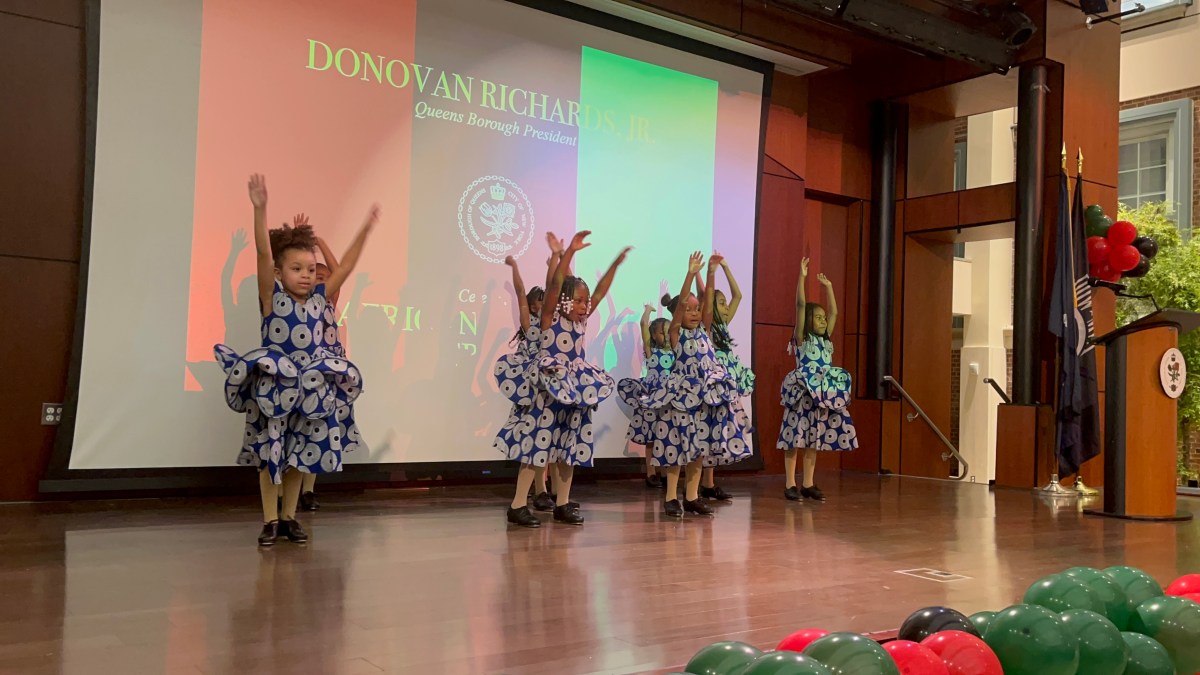
The audience then enjoyed a vibrant performance by dancers from the DeVore Dance Center. The young dancers donned bedazzled outfits as they tap danced for the eager crowd. Following the performances, a group of young singers from the Laurissa Jane Music Group took the stage to sing a Kwanzaa song.
Also on stage was the Queens Alumnae Chapter of Delta Sigma Theta Sorority Step Team. The group performed a series of step performances and educated the crowd about the history of stepping. The art of stepping originated in Africa, specifically in the West African countries of Nigeria, Ghana and Senegal. It incorporates African dance and rhythmic body movements. Black Greek organizations began to step in the late 1960s.
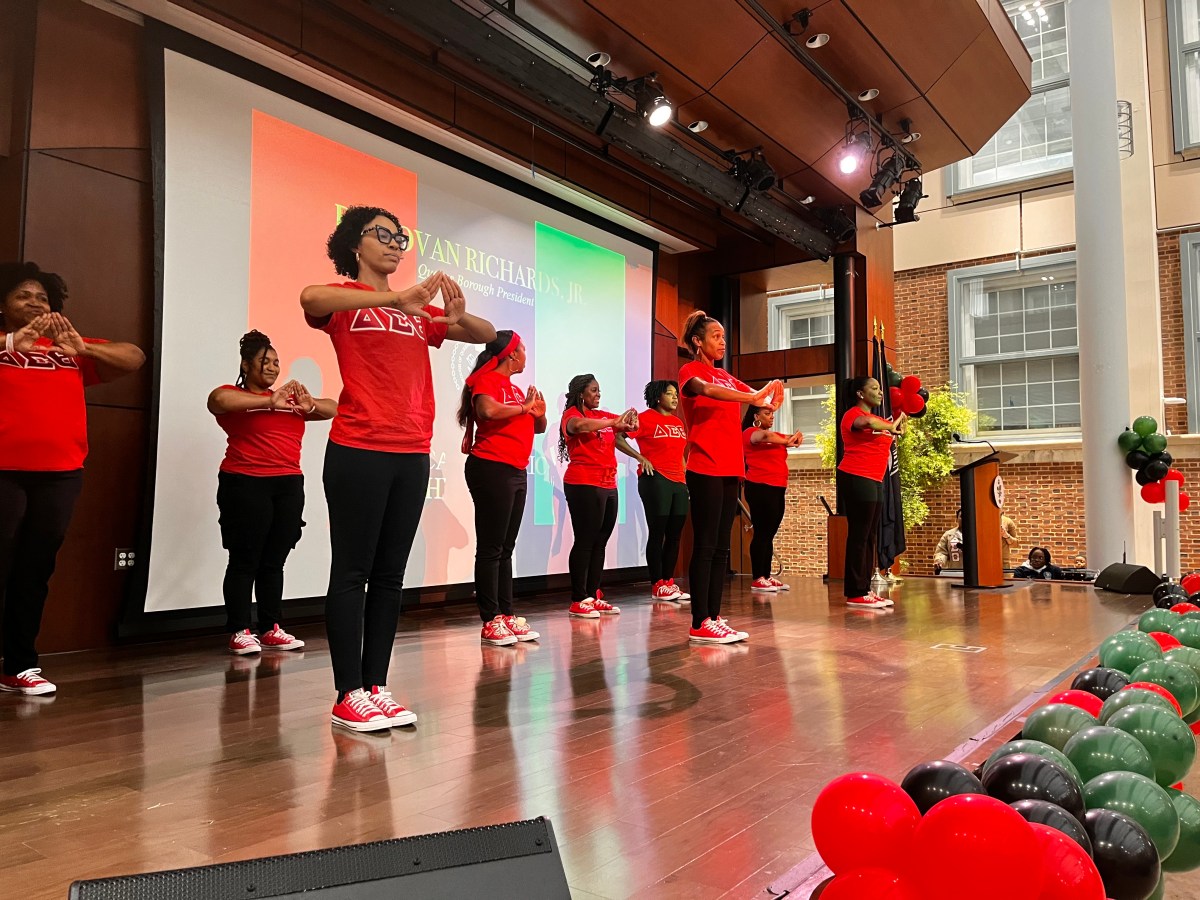
Audience members were then treated to an in-depth presentation of the symbolism of Kwanzaa’s elements, led by Ifi Natalie Paschell, Sundiata Akili Gittens, Emilio Babatu Gittens and Sekou Molefi Baako.
Paschell started the ceremony by asking the eldest person in the audience to permit them to begin. “This whole experience is about us loving ourselves, understanding the richness of our culture and teaching our children to participate in Kwanzaa because Kwanzaa is about reclaiming ourselves and our history,” Paschell said.
Baako explained the importance of paying tribute to ancestors through pouring libations. “Libations are paying respect to the creator of all things big and small, and also paying respect to ancestors who came before us because, without the ancestors, none of us would be here,” he said.
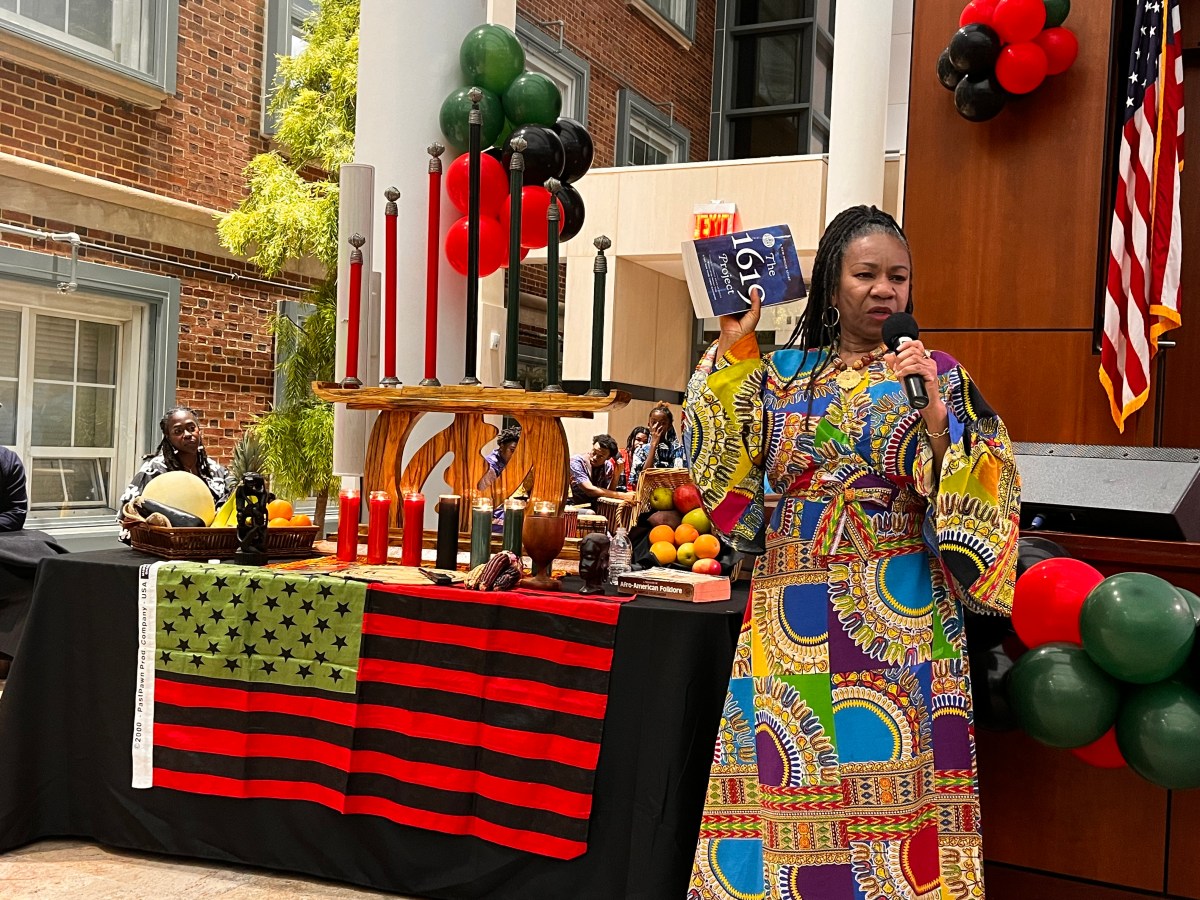
Paschell detailed the history of Kwanzaa, founded by Dr. Maulana Karenga in 1966. She described the creation of the nonreligious cultural holiday as an effort to give African Americans a vehicle to return and take what they lost.
“You know how it feels when you lose something, and you don’t know where it is, and you don’t know where to find it? Well, that’s the nature of what African American people have going on here,” she said. “We don’t have a memory of our languages; we don’t have a memory of the names we used to have. But when we use Kwanzaa, it gives us an opportunity to go ahead and research those things, listen to discussions of these things and listen to the commemoration of these things,” Paschell said.
Much of Kwanzaa is inspired by elements of first fruits celebrations across the African continent, commemorating harvest blessings. Additionally, Kwanzaa is celebrated over seven days, with seven named principles celebrated each day. The language of Kiswahili is used when celebrating Kwanzaa, as it is one of the most widely spoken languages in East Africa.
Emilio explained the seven principles of Kwanzaa to the audience. The days celebrated in order are Umoja (Unity), Kujichagulia (Self-Determination), Ujima (Collective Work and Responsibility), Ujamaa (Cooperative Economics), Nia (Purpose), Kuumba (Creativity) and Imani (Faith). Each of the seven candles on the centerpiece presented to the audience was lit in the candle holder called the Kinaara. Along the centerpiece were fruits, mats and corn. The fruits represent the fruits of one’s labor, the mats represent a bountiful harvest and the ears of corn represent the children in one’s family.
Following the demonstration, Emilio, Sundiata and Ma’a KheperAb Feaster performed African drumming, which left the audience cheering.
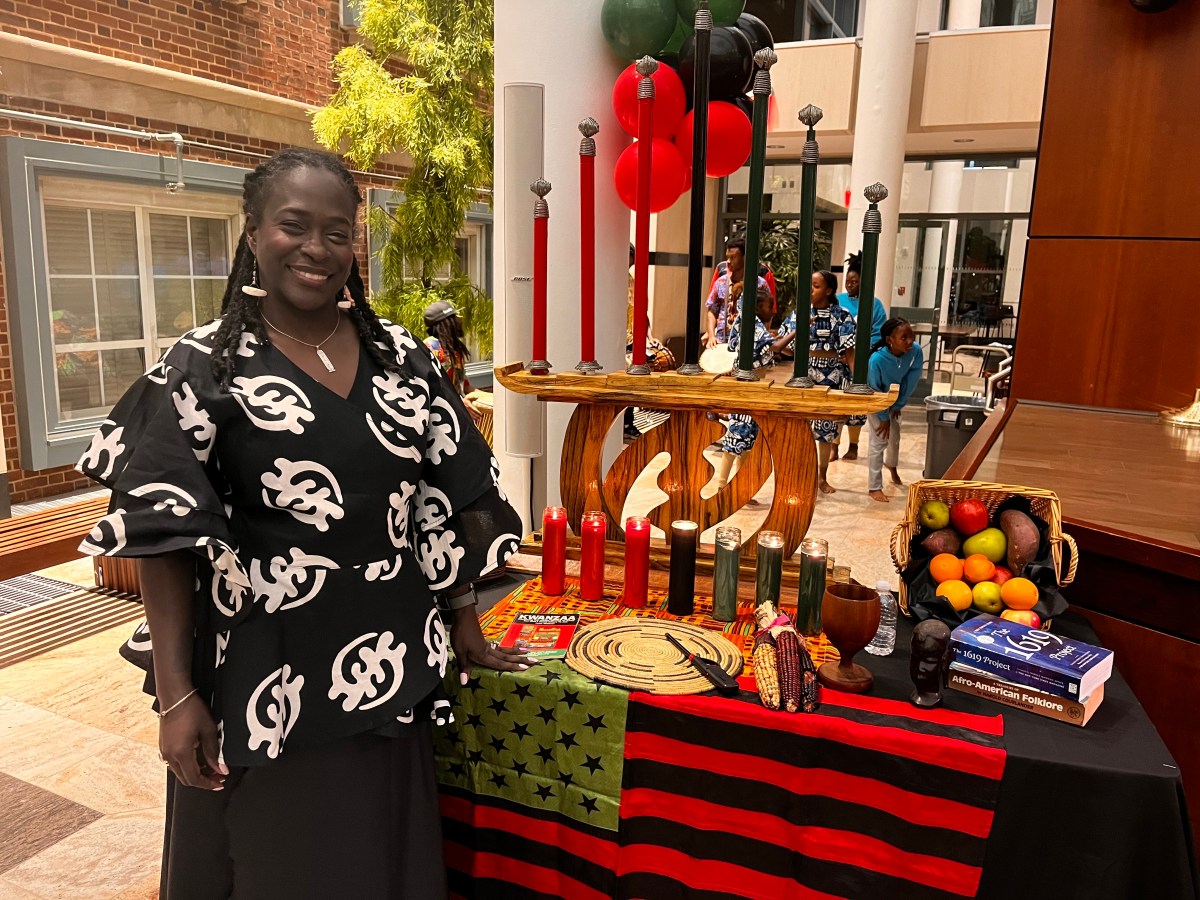
During the latter part of the event, local educator and poetess Phoebe Eligon Jones took the stage to perform two spoken word pieces entitled “Just Close Your Eyes” and “Tomorrow’s Grace.” The event ended with a final performance by the DeVore Dance Center, which included students showcasing their African dance skills and a handful of young drummers.

